Week 9: Visiting Ellenville
June 4, 2025
Hi all,
This blog post consists of two sections. The first will directly continue from the topic discussed in my last blog post, and the second will discuss my trip to Ellenville in which I visited Mr. Goldman and The Common Good, among other topics.
Returning to the discourse surrounding whether to politicize mega-events, the apolitical pretense maintained by mega-event organizers often persists even when the organizers want to capture the spirit of politics. Mega-events like Live Aid are made to be apolitical despite the illusion that the concert is taking a stance against social issues relevant to politics like poverty and hunger. You’ll notice that, in the imagery and messaging, you never see the military airplanes bombing the crop fields of Ethiopia, but rather the devastation afterwards, as if nature caused the famine. You’ll never see starving men, as they’re mostly all off fighting. You’ll never see the child soldier wielding a Kalashnikov, but rather the hungry baby who exists not as a political subject but as a living creature, capable of suffering but not advocating. Depictions of human suffering focus on zoë, in the words of Italian philosopher Giorgio Agamben, or the “bare life,” the fact that the organism is biologically alive. This is in contrast to bios, the “political life,” or the way in which one lives their life and uses agency to make choices, some of which may conflict with others. Zoë sparks compassion and donations for the innocent victim, whereas bios reflects ugly truths that obscure narratives, such as which side is “good” and which is “bad.” Suddenly, donating to do the right thing becomes less convenient, as what the “right thing” is becomes unclear.
Organizers cannot have this, of course. It simply wouldn’t do to host Live Aid and tell the audience of 1.5 billion people to make up their minds about which side in the Ethiopian civil war they wish to support. Perhaps most of them did not know such a war was occurring. In any case, there must be a clear story to tell with clear victims, and yet at the same time no mention of the politics responsible for their victimhoods. The donations roll in, aimed towards providing food to the starving people, and yet nothing is done about the war. The savior complex lives another day, narratives of helplessness grow stronger, and the public is satisfied with having empathized with a far-away individual through a computer transaction. The status quo remains, and in due time another similarly-fashioned concert comes along, likely without changing much.
Well, that was bleak. So how does this relate to my research?
There are many changes to request of concert organizers, all in effect “to do better.” One could ask, “what if we try to make a truly political concert? Will that fail disastrously, or will that do something? How might that backfire?” We could ask, “how does the anonymity of a country, its culture, and its political climate in the eyes of Western audiences relate to the success of a zoë-infused narrative of victimhood? To funds raised?” “How does the use of technology in organizing a benefit concert relate to its propensity for political activism?” More broadly, “what does a truly political concert look like? What examples have there been?”
Most people don’t *want* more politics in everyday life. It’s hard, it’s discouraging, it’s corrupt, and it’s of course divisive. I don’t want to advocate for a particular cause even in this Senior Project for the same reason. Part of why we picked “a girl’s cancer treatment” as the subject of our upcoming benefit concert is because it’s not controversial. I have no idea who I would have supported in the Ethiopian civil war. Yet it’s fairly evident that most of the issues plaguing humanity are self-inflicted. We created wars, poverty, famine, and nuclear weapons; we exacerbate environmental disasters; and we are ultimately responsible for how much funding we allocate towards medical research. We may not be able to write a letter to cancer asking it to resign, we can care about the battle against cancer and the forces involved. This particular area is the compassion for which Mr. Goldman and I hope to build our constituency with our concert, but the sky’s the limit.
Our concert is Sunday, June 8th, by the way, so don’t miss it! Attendance is free, but we do have a suggested donation of around $12. You can ask me for more details, but we’d love it if you could come.
So now, what’s this all got to do with econometrics, variables, or simulations? Of course, we are interested in factors like price and demand. However, there are some more abstract forces to analyze, like appeal strength, publicity, or access. There are the public’s political sentiments or leanings on certain issues that have supporting data, and then there are details that may not be quantifiable like, “to what degree should one cooperate with government agencies and development NGOs?” There are also, of course, different ways to support a cause, whether that’s buying short-term relief like food supplies or channeling money into grassroots educational programs to increase long-term prospects and quality of life.
Applying this research means finding relationships between these variables, or likely using regression analysis to extract meaning from factors like total funds raised, total attendance, popularity of issue, promotional techniques, use of technology, and performer publicity. From this work, I can only hope to derive insights that may inform answers to the more abstract questions behind this project, and bundle them all up for you in a presentation. The literature can give backing to ideas like, “mega-events that fail to inspire political action fall short of challenging the status quo,” but my research must ask, “by how much?”
———————————————————————————————————————————————
When I first heard that Mr. Goldman lived in the town of Ellenville, NY, a solid 100 miles away from the city, I was rather excited to see just how different it’d look from my usual surroundings. The only real obstacle was getting to and from the town on the 20th, a Tuesday morning, during which Mr. Goldman closes the “shop” but still tends to business matters. I graciously received an excused absence and, wary of the different and frankly unexciting bus routes to Ellenville, bought Amtrak tickets to Poughkeepsie, where Mr. Goldman thankfully was able to meet me. I left the house at 6:30 in the morning and arrived at the station at 8:45, after which we had a drive lasting a little under an hour to get to Ellenville, stopping by a Walmart on the way to pick up supplies for The Common Good’s kitchen.
We got to The Common Good at around 10 AM, and it’s rather gorgeous in-person. It’s very carefully put-together, and the quarter-circle stage that our performers will eventually use was thankfully larger than it had seemed in our Google Meets. Mr. Goldman was quite shaken by the state of the children’s section, as it appears Ellenville toddlers had not yet grasped the importance of alphabetical sortation. Nonetheless, we sat down, and I began working on a flyer draft to be shown physically around Ellenville and on social media platforms such as Facebook. We briefly spoke about using other platforms such as Instagram or TikTok, but we dismissed the idea, as Mr. Goldman had seen little benefit from promoting The Common Good on the apps before, and the emphasis on short-form content makes Instagram or TikTok less useful for conveying information compared to a Facebook post. We also figured Facebook would reach older audiences, as apparently everyone in Ellenville over 45 uses Facebook.
After some time I finished the flyer draft, using a somewhat sleek black-and-white design with a gold accent, as the gold/yellow ribbon symbolizes sarcomas, the specific category of cancer in question. We then had Mexican for lunch and toured Ellenville somewhat more, seeing historical buildings like where the women’s temperance society had its headquarters in the 19th century. In the city charter, according to Mr. Goldman, it is illegal for alcohol to be present in that building to this day. Despite this, he told me some teens drink there nowadays, though we were unable to determine whether this was a deliberate act of civil disobedience or an ironic coincidence.
As I was leaving, I wanted to thank him and purchase a book, leading him to present me with several interesting collections of essays in musical journalism. The one I ended up choosing, he told me, looked at the New Jersey punk and emo scene through the eyes of a Muslim American, though it was his fiercely-asserted admiration for the book’s writing that led me to pick it more than anything else. As we entered the car, I looked a little closer and saw Lucy Dacus’ praise on the back cover. On the way to the station, we played different kinds of music ranging from my beloved Wolf Alice, to the Stone Roses and Primal Scream, to some solo indie artists like Julia Jacklin, whose music he said he enjoyed but admitted that one of his colleagues would label it “whingy.”
I got home safely after a 30-minute delay having gotten a feel for the town, discussed various logistics, and created a draft flyer for Mr. Goldman to edit and post in the coming days. It was somewhat exhausting, and it was the first time I had ever traveled on Amtrak alone, but even though I nearly missed my stop, I got a lot of good memories out of the whole experience. I’m excited to visit again on the 8th.
Of course, I took many photos that day. Here are some highlights:
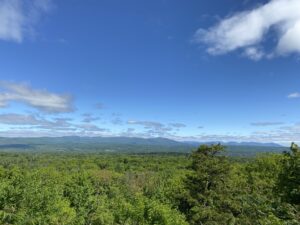
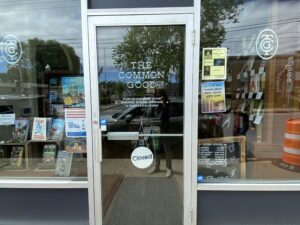
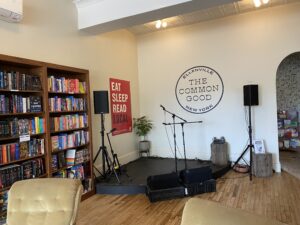

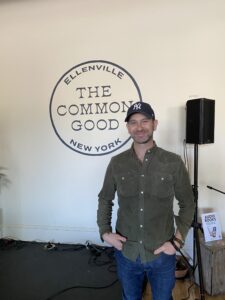

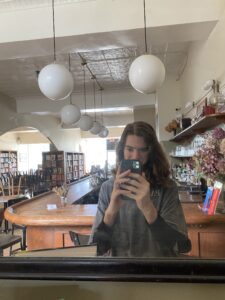
———————————————————————————————————————————————
This is all that I had room for in this blog. To quickly summarize everything else going on, Mr. Rappelfeld and I agreed to have the presentation rehearsal on Tuesday the 10th, meaning I’ll have to quickly update the slides to include all the takeaways from the concert itself. We’ll see how that goes. The Week 10 blog post will aim to supply the data behind benefit concerts and analyze the relationships between these variables as mentioned in the first part of this blog. Additionally, it will show my progress on the Senior Project presentation and hopefully wrap up any loose ends from the past few months of blogging. Until then, that’s all I’ve got. See you later.
Reader Interactions
Comments
Leave a Reply
You must be logged in to post a comment.

Wow, this was a good one. On the first section, your discussion of how a benefit concert or similar event often has to balance gaining funds to address an issue with ignoring it’s underlying causes was very thought-provoking. The second section was an entertaining story, and quite well written. Excited for next week’s post!